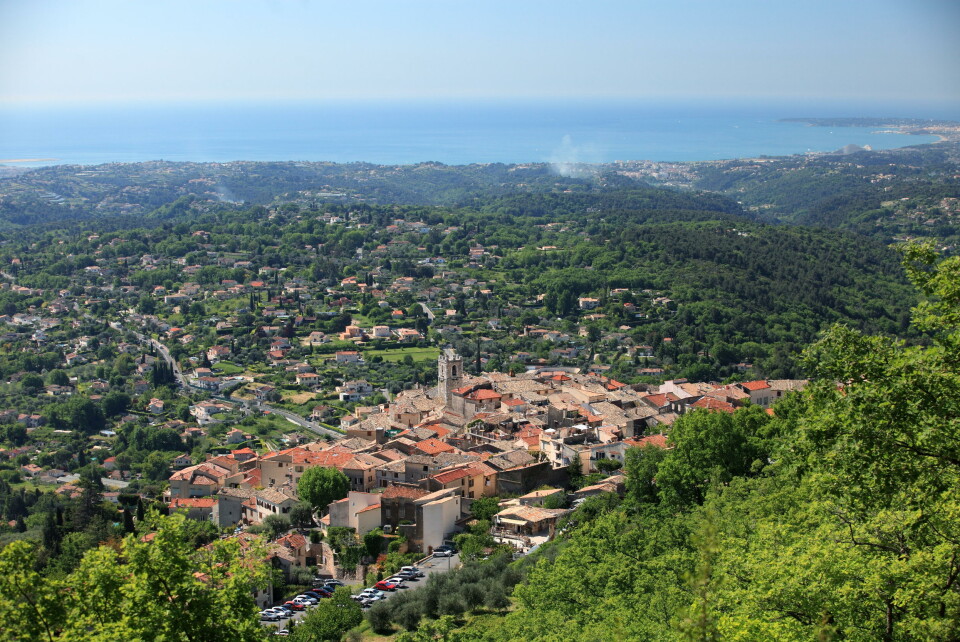-
Naturist village condemned by Bordeaux court for having too many people
Three residents of France’s largest naturist village say it is becoming too crowded
-
House ruined by wood-rotting fungus - ‘French insurance will not pay’
Fungus can be swept in through windows and vents and lead to extensive damage. Insurers consider it homeowners’ fault
-
No state payout for requisitioned homes built illegally in France
Properties built without permission do ‘not retain right’ to expropriation compensation, states new court ruling
SEE: Briton’s French chateau extensions demolished as not authorised
15-year court battle results in state pulling down buildings and sending a €140,000 bill for the work

A British chateau owner who had several extensions built without permission at his 11th-century property near Nice is now seeing them being demolished and faces a €140,000 bill for the work.
A court battle over expansions on the land of the Château Saint-Jeannet has raged for over 15 years but now the state has stepped in for a second time to demolish a building on the property.
A gallery lying at the foot of the property, alongside adjacent buildings used to house workers and host events, is in the process of being torn down.
In 2017, a renovated cottage on the property was also demolished by order of the government.
The €140,000 bill for the demolition – set to be finished by March 15 – will be sent to the owner.
No planning permission sought for works
The gallery was built – and the cottage completely renovated – soon after British filmmaker Jon Acevski, 77, purchased the chateau in 2003, however he did not seek any planning permission for the works from the local authorities.
Renovations of this size always require planning permission, and need to ensure they fall within the local urban planning codes (plan local urbanisme - plu), which Mr Acevski failed to do.
Read more: What are the rules for demolishing and rebuilding property in France?
The Grasse criminal court originally ordered the demolition of the buildings and a €5 million fine in 2009, however both findings were contested all the way to the Cour de cassation, France’s highest judicial court.
Despite this, the property owner continued to attempt to appeal the charges, and refused to demolish the buildings.
This lasted until 2017 when the state intervened and demolished the cottage.
Despite this, the condemned gallery was left untouched by the owner, forcing the state to return once more and demolish it off its own back.
“The strategy of obstruction never pays off,” said Mathieu Eyrard, deputy director of the Departmental Directorate for Territories and the Sea.
The costs of the procedure are significantly higher than usual due to the nature of the gallery, which sits on a hilly slope and required a geotechnical engineer to survey the land prior to the demolition.
“It's a major operation, and a rare one at that. We can't take any technical or legal risks,” Mr Eyrard added.
You can see some photos of the demolition in the social media post below.
More photos of the property can be found here on the Le Figaro website.
Read more: Why a commune in France is spending millions demolishing villas
Original home remains intact
Demolition work is only being carried out on the newer buildings, and the chateau itself remains untouched, as well as the vast majority of the land associated with it.
The property is split into two, with one part being a private home for the owner, and the other used as a venue, including for weddings and other private events.
Local media reports claim that celebrities including Madonna and Naomi Campbell have stayed at the castle. Before Mr Acevski purchased the property, it was owned by the daughter of actress Viviane Romance.
She allegedly also attempted to undertake major renovations on the property, but was unable to do so.
Related articles
New pool must go due to neighbour’s ‘protected view’ clause in France
How can I oppose my neighbour’s building application in France?
























